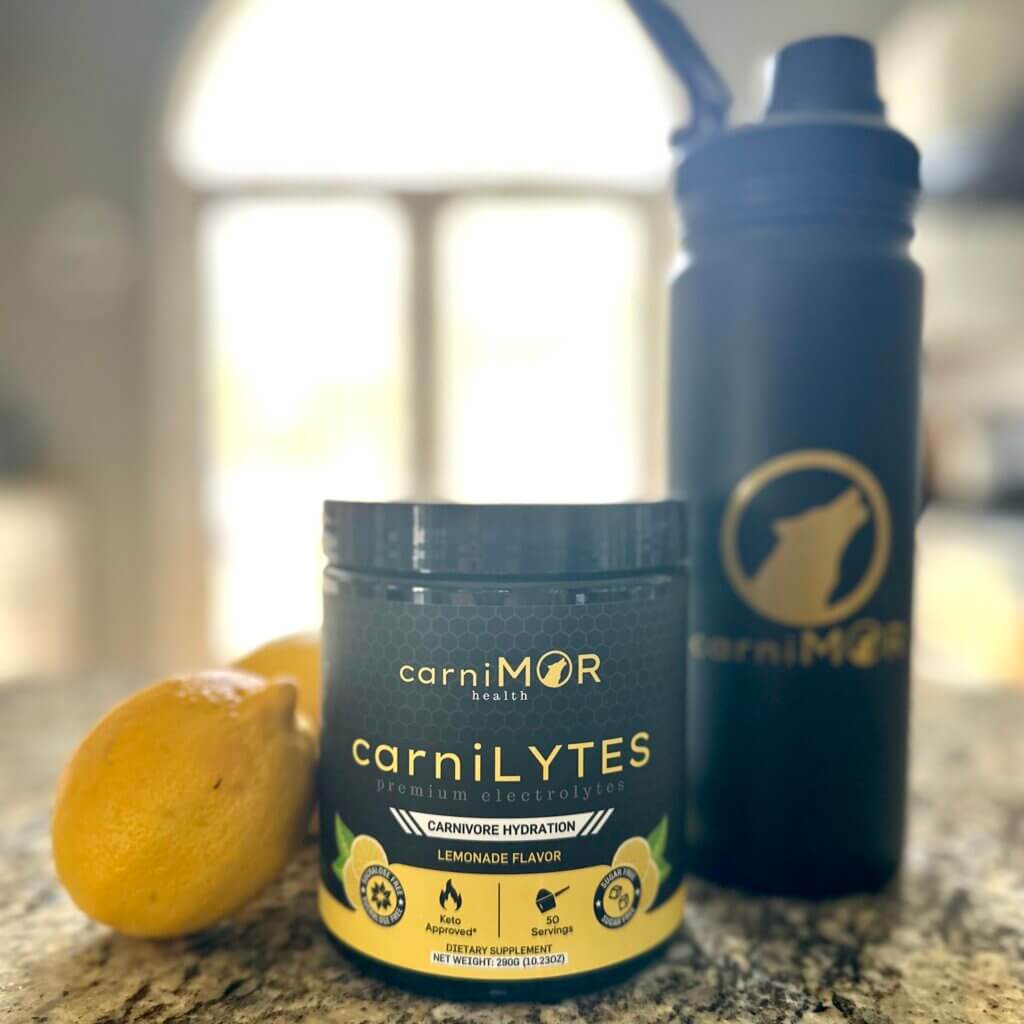The carnivore diet is a dietary approach that has gained popularity in recent years. It involves eating only animal-based foods and eliminating all plant-based foods from the diet. While this approach may offer a number of benefits, it can also lead to certain challenges, particularly when it comes to electrolyte balance. In this blog post, we will explore why you should take electrolytes when on the carnivore diet and how they can help support your health and wellbeing.
What are Electrolytes?
Electrolytes are minerals that are essential for a number of bodily functions, including nerve and muscle function, hydration, and maintaining proper pH balance. The most important electrolytes in the body include sodium, potassium, magnesium, calcium, and chloride. These minerals are found in a variety of foods, including fruits, vegetables, and animal-based foods.
Why Do You Need Electrolytes on the Carnivore Diet?
On the carnivore diet, you are consuming only animal-based foods, which can lead to a number of challenges when it comes to electrolyte balance. For example, animal-based foods are typically lower in potassium than plant-based foods. Additionally, since the carnivore diet is low in carbohydrates, you may experience a decrease in insulin levels, which can lead to a decrease in sodium retention in the body. This can cause an imbalance in electrolytes, which can lead to a number of symptoms, including:
- Muscle cramps
- Fatigue
- Headaches
- Nausea
- Dizziness
- Irregular heartbeat
To prevent these symptoms, it is important to make sure that you are getting enough electrolytes in your diet.
How Can You Get Electrolytes on the Carnivore Diet?
There are a number of ways to get electrolytes on the carnivore diet. Here are a few options:
- Salt
Salt is one of the easiest and most effective ways to get electrolytes on the carnivore diet. Sodium is one of the most important electrolytes in the body, and it is essential for maintaining proper fluid balance and nerve function. You can add salt to your meals or drink salt water to increase your sodium intake.
- Magnesium
Magnesium is another important electrolyte that is essential for muscle and nerve function, as well as bone health. While magnesium is found in many plant-based foods, it is also found in animal-based foods such as fish, beef, and chicken. You can also take a magnesium supplement to ensure that you are getting enough of this important mineral.
- Bone Broth
Bone broth is a nutrient-dense food that is rich in electrolytes such as calcium, magnesium, and potassium. It is made by simmering bones in water for an extended period of time, which extracts the nutrients from the bones and into the broth. You can drink bone broth on its own or use it as a base for soups and stews.
- Organ Meats
Organ meats such as liver, kidney, and heart are some of the most nutrient-dense foods on the planet. They are rich in a wide range of vitamins and minerals, including electrolytes such as potassium and magnesium. Adding organ meats to your diet can help ensure that you are getting enough electrolytes.
- Supplements
Finally, if you are having trouble getting enough electrolytes from your diet, you may want to consider taking a supplement. There are a number of electrolyte supplements available on the market that can help support your health and wellbeing. We recommend getting one of a variety of products that come in individual packets that you can easily add to a bottle of water on the go. This is so important to us, that’s why we launched carniLYTES which is the best electrolyte powder on the market for people on the Carnivore Diet.
In conclusion, taking electrolytes when on the carnivore diet is essential for maintaining proper electrolyte balance and supporting your health and wellbeing. By incorporating foods such as salt, magnesium, bone broth, organ meats, and supplements into your diet, you can ensure that you are getting enough of these important minerals. Of course, like any dietary approach, it may not be suitable for everyone. It is important to consult with a healthcare professional before starting any new diet to ensure that it is safe and appropriate for your individual needs.



